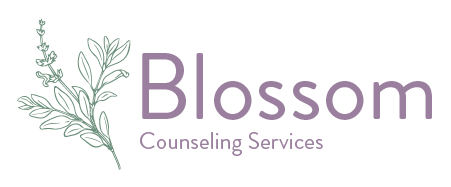In Indigenous communities, we know that healing is not only personal—it is collective. The pain our ancestors carried doesn’t disappear with time; it lives in our bodies, our relationships, and our ways of being. This is what we call the generational trauma cycle—a passing down of wounds that were never meant to be ours but became embedded in the very rhythm of our lives.
And yet, this truth holds its own medicine: if trauma can be passed down, so can healing. If we are carrying the pain of generations, we also carry their strength, wisdom, and prayers. The cycle can be broken, and a new legacy can begin—with you.
What Is Considered Generational Trauma?
Generational trauma, also known as intergenerational trauma, refers to the emotional, psychological, and sometimes physical pain that is passed from one generation to the next. It often stems from events like colonization, displacement, abuse, war, addiction, systemic racism, or poverty—experiences that disrupt safety, identity, and connection.
What makes this trauma “generational” is that the responses to those wounds—hypervigilance, emotional numbness, mistrust, rage, or shame—are often inherited by children who never experienced the original harm firsthand. Families pass down survival strategies, beliefs, and emotional patterns that were once necessary but may now be harmful.
For a more detailed explanation, you can read our article on what generational trauma is and how to break the cycle, which explores this concept with clarity and care.
How Do You Break Out of Generational Trauma?
Breaking the generational trauma cycle is a sacred act of courage. It means facing what your family may have avoided for generations. It means choosing to feel, to question, to speak, and to heal in ways that your ancestors may not have had the privilege to do.
Here are some ways to begin:
- Awareness: Start noticing patterns in your family—repeated relationship struggles, emotional shutdowns, anger that erupts without warning. Ask, “Where did this begin?”
- Feel to Heal: Allow yourself to grieve the pain you’ve carried and the connection you’ve missed. Grief is not weakness—it’s a return to truth.
- Set Boundaries: Breaking cycles often requires creating space from harmful behaviors—even when they come from family. Boundaries are not rejection; they are protection.
- Seek Support: Healing doesn’t happen in isolation. Therapy, community, cultural practices, and spiritual connection are all powerful tools.
- Practice New Ways: Learn new ways to communicate, cope, and care for yourself. These become the roots of the legacy you’re creating.
You are not betraying your family by healing. You are honoring them in the most powerful way possible—by choosing to live differently.
What Are the Four Main Things Childhood Trauma Deeply Affects?
When the generational trauma cycle is left unaddressed, it often shows up early—in childhood. Trauma in childhood deeply affects four key areas:
- Emotional Regulation
Children exposed to trauma may struggle to manage big feelings like anger, sadness, or fear. They may shut down or explode because they were never shown how to feel safely. - Self-Worth
Trauma often leaves children believing they are “bad,” “not enough,” or “too much.” These beliefs follow them into adulthood, affecting confidence and self-love. - Relationships
Childhood trauma can create deep mistrust or unhealthy attachment patterns. Adults may fear intimacy, sabotage relationships, or become overly dependent. - Nervous System Function
Trauma doesn’t just affect the mind—it impacts the body. Children raised in unstable environments often live in survival mode, with heightened anxiety, sleep problems, or chronic illness later in life.
By healing your own childhood wounds, you begin to rewire your nervous system and reclaim your capacity for joy, rest, and connection.
What Are Toxic Generational Cycles?
Toxic generational cycles are harmful behaviors, beliefs, and emotional responses that repeat within families, often unconsciously. These might include:
- Emotional repression (“We don’t talk about feelings.”)
- Normalizing abuse or neglect (“That’s just how we were raised.”)
- Addictions or compulsions
- Rigid gender or cultural roles
- Shame-based parenting
- Silence around trauma or loss
These patterns are not signs of weakness—they are survival responses passed down in times of hardship. But what once helped our ancestors survive may now be holding us back from thriving.
Breaking toxic generational cycles is not about blame—it’s about responsibility. When you choose to see clearly and act differently, you create space for healing across time.
Healing Is an Act of Ancestor Work
In Indigenous traditions, healing ourselves is never just about us. When we begin to address our pain, we also liberate the voices of those who came before and make the path lighter for those who come after.
You are not starting from scratch. You are standing on the prayers of your ancestors, even if they never had the language for healing. You are the dream they didn’t know how to speak aloud.
Ready to Begin?
If you feel the weight of inherited pain, know this: you are not alone, and you are not broken. You are a vessel of resilience, and healing is your birthright.
At Blossom Counseling Services, we offer trauma-informed therapy rooted in Indigenous wisdom and spiritual care. We hold space for you to explore, release, and reweave your story with compassion and courage.
Book a session with Blossom Counseling Services today and take the first step toward breaking the generational trauma cycle—for yourself, your ancestors, and the generations yet to come.
Get Started
You may call, text message, email, or fill out the form to reach us. We will respond within 48 hours, Monday through Friday.
We Will Help You Find Your Fit
We know that looking for a counselor can feel overwhelming.
We are here to help guide you to the counselor that is best for your needs. If that counselor turns out to
not be in our practice, that's okay. We know great counselors that we'd be happy to refer you to.
What’s most important to us is that you get connected with the help you need. We are here for you.

